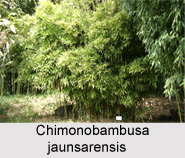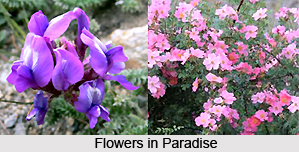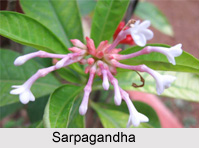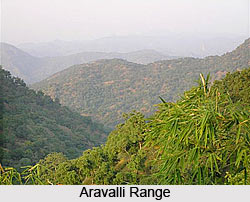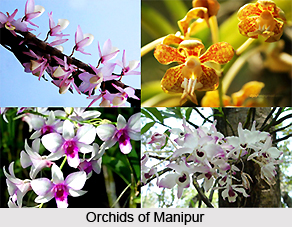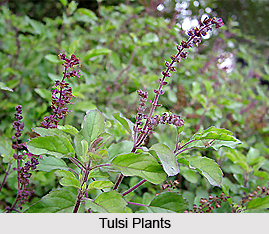 Tulsi is sharp, bitter, and hot; it benefits the heart, stimulates appetite, causes a burning sensation and increases the secretion of bile. Normally only the leaves of the plant are used medicinally. Occasionally, the seeds are also used.
Tulsi is sharp, bitter, and hot; it benefits the heart, stimulates appetite, causes a burning sensation and increases the secretion of bile. Normally only the leaves of the plant are used medicinally. Occasionally, the seeds are also used.
The presence of a Tulsi plant in a house destroys insects, especially bedbugs and lice. It purifies the air. Ram Tulsi is hot and dry in action. It cleanses the nostrils, strengthens the heart, the liver and the stomach, helps digestion, reduces inflammation, has beneficial effects in all disorders related to mental distress, though it may cause headaches and is generally insalubrious for persons with physiological natures classified as `hot` in Ayurvedic terms. It is beneficial in swellings caused by excessive mucal congestion caused by kapha, as well as in disorders caused by cold surroundings, and it destroys worms lodging in the alimentary canal.
The seeds are highly beneficial in cases of dysentery, diarrhoea, dry cough and pulmonary congestion leading to wheezing sounds while breathing. They also induce the production of more concentrated semen. Allopathy regards Tulsi as an expectorant, and a cure for malaria and many other diseases.
The Tulsi plants grow wild in all warm regions in general, and are also cultivated in orchards and gardens. Tulsi does not grow well in cold regions.
